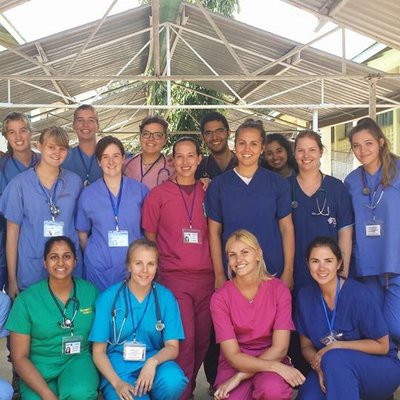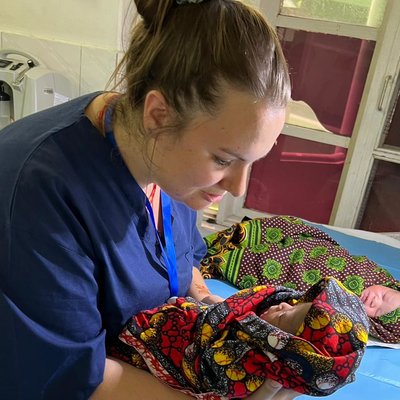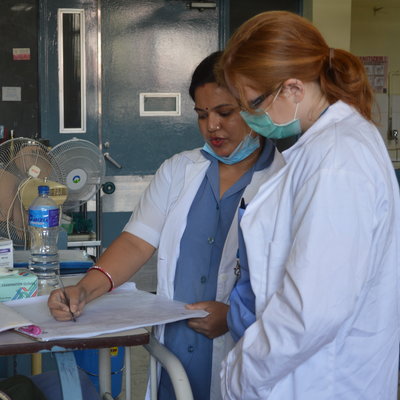Stuck for nursing elective placement ideas?
Why not combine eye-opening clinical experience and adventure by travelling overseas and doing your elective in a low-resource hospital?
Here, you’ll find inspiration for electives in Africa and Asia and information on how the experience will help prepare you for a job in nursing.
You can travel if you’re in one of the following nursing branches:
Adult Nursing Elective Placement Ideas
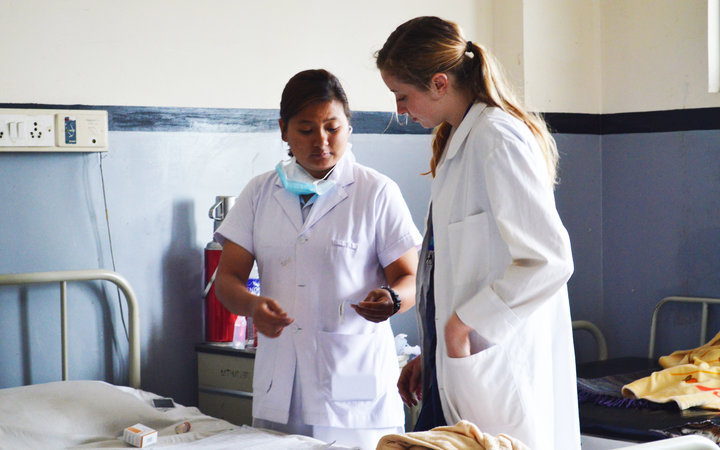
If you’re studying adult nursing, you’re already familiar with the 6Cs — the backbone of any successful career.
But they’re not the only skills you need to succeed.
The NHS outlines other responsibilities and characteristics you have to develop:
‘You'll be responsible for several patients, each with different needs, so you'll need to be highly organised, flexible, and able to prioritise effectively.
A good adult nurse is also highly observant, able to assess patients and take responsibility for determining the best course of action for them.’
Nursing is a varied and demanding vocation. But don’t worry—an overseas nursing elective will help prepare you for the job.
For example, developing your communication skills while overseas can help you become a better listener and develop a deeper compassion for the patients you care for.
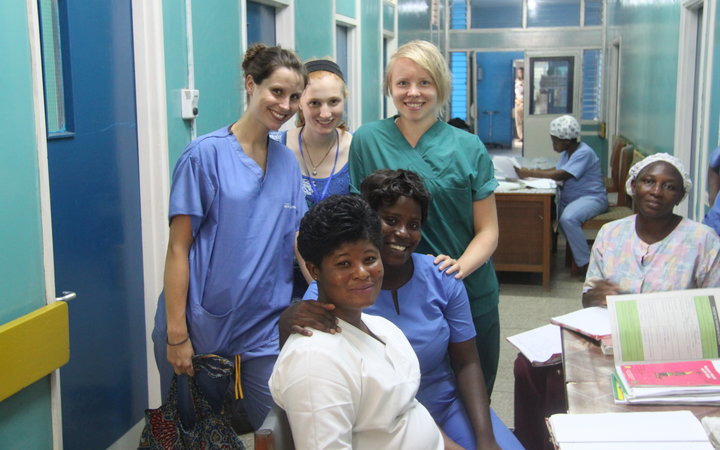
Nadia, a student who undertook her elective in Ghana, describes how her placement in Ghana helped her find common ground with her patients from minority groups in Leeds:
“There’s no question that my elective in Ghana prepared me for work. I work in Leeds, a culturally diverse place, so many patients I treat are from overseas. Whenever I see women from Ghana or countries near Ghana, we immediately have something to talk about. The experience also helped me better understand patients with babies in low-resource settings. I try to make their experience in the UK easier by explaining what they can expect to be different.
Undertaking your nursing elective placement overseas, you can rotate through as many departments as you want. You’ll get exposure to areas you might eventually decide to specialise in.
You can get experience in small clinics, regional hospitals, community outreach programmes, and remote tribal villages.
Hugh Le Leivre undertook his elective in Tanzania. The experience helped him figure out what kind of practitioner he wanted to be. He now works in a rural GP clinic in Australia, and it’s clear his elective experience influenced this decision:
‘The overseas experience affirmed my passion for community-based and preventative healthcare. […] It will change the way you see your career.’
Child Nursing Elective Placement Ideas
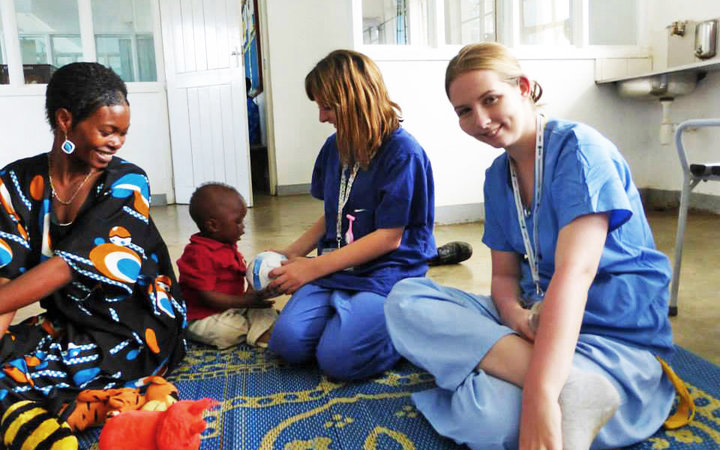
If you are studying child nursing, as you already know, children’s healthcare needs are specific. That means you have to have a breadth of knowledge but also a depth of compassion and understanding. The job also means working closely with parents and guardians.
The NHS outlines the responsibilities and ideal characteristics of a children’s nurse like this:
‘You’ll need to be intuitive and able to reassure distressed children, their families, or carers. Verbal and nonverbal communication skills are important, as is the ability to play sensitively with a child. You'll need to advise or teach the child's parents or guardians how to treat the child at home. Respect, sensitivity, and empathy are also important characteristics for a child nurse.’
Getting experience in a low-resource clinical setting is the best way to prepare for these situations. You’ll spend time with children from economically disadvantaged backgrounds, learn how to work around language barriers and understand how children’s nurses overcome severe resource limitations and still provide good patient care.
Helen Scivier, a student who undertook her placement overseas, outlines some of the things she experienced on a typical day on placement:
‘The children on the surgical ward were there for various reasons. Some had fractured limbs. Others were post-appendectomy. One boy I helped care for was awaiting a skin graft following a 40% burn. A typical day on placement for me involved listening to the ward rounds, chatting and playing with the children, assisting the nurses with medicine rounds and helping with dressing changes and observation. I jotted down some basic phrases in the local language, which helped when communicating with the children and their families.’
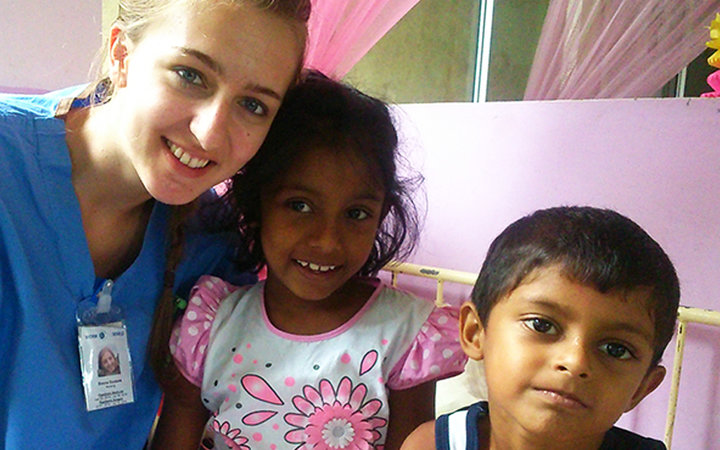
Getting experience with child patients and their families, finding ways to communicate with them and making them feel at ease put Helen far closer to becoming a proactive child nurse.
Your career options are wide open as a child nursing student. You could work in hospitals, dedicate your time to research, or specialise in health visits.
Undertaking your placement overseas will give you a good idea of where you might want to work. One reason is that you can rotate through as many hospital departments as you want.
Madison, a nursing student who undertook her placement in Tanzania, talks about the wards in which she gained experience:
‘I spent time in the paediatric ICU, the premature baby unit, and the labour ward. In the paediatric ICU and premature baby unit, I administered medication, performed assessments, took vital signs, and helped the nurses and doctors with various procedures. Importantly, I helped treat patients with illnesses not typically seen at home, like malaria, meningitis, sepsis, and severe pneumonia.’
Madison’s placement gave her a breadth of experience through the diversity of departments she worked in and the cases she encountered. Gaining actual experience in areas you can progress into and spending time with specialists in these areas helps you when making career decisions as you move forward.
Mental Health Nursing Elective Placement Ideas
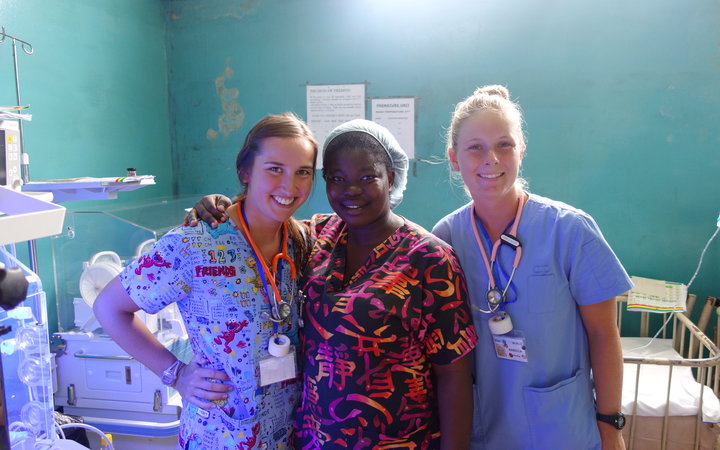
The NHS outlines the responsibilities and characteristics you should aim to develop as a successful mental health nurse:
‘Your personality and communication skills are crucial to being a mental health nurse. You’ll need a good knowledge of mental ill health theory and how to apply it. You’ll be warm and engaging while empathising with service users and their circumstances. This may include the social stigma of mental health, which can be equally hard to overcome.’
With the right experience, you can excel in all the above characteristics.
A surefire way to become an outstanding mental health nurse is to experience the diversities in treatment and perceptions of mental health conditions worldwide.
Mental health is not a fully integrated field in much of the developing world, and many treatments are far from what people are used to at home.
The experience will show you the challenges local specialists confront while challenging social and religious beliefs influencing local perceptions and stigmas surrounding mental health.
Sally, a mental health nursing student who travelled to Ghana, found that her placement delivered experiences that stayed with her long after she came home:
‘I learned so much about cultural sensitivity and religious values and had some eye-opening clinical experiences which will stay with me forever. I even had the opportunity to administer medication, take blood, and witness how Ghanaian cultural and religious beliefs influence mental health service engagement.’
Joanne also travelled to the developing world for her mental health nursing placement. Below, she writes about some of the things she experienced:
‘During my time on the psychiatric ward, I had the opportunity to observe ECT, participate in ward rounds, and interact with the patients. I was also fortunate to be taken by the housemaster to a rehabilitation centre 20km away. I even spent time with the psychologists and in outpatient clinics.’
Learning Disability Nursing Elective Placement Ideas
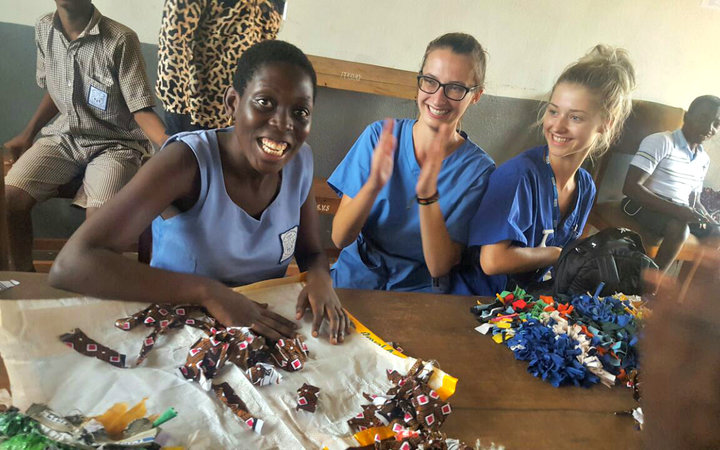
Working with patients who have learning disabilities can be incredibly rewarding. Progress may be slow sometimes, but you’ll feel deeply satisfied when a patient gains confidence or learns a new skill because of your involvement.
The NHS outlines the responsibilities and characteristics you should aim to possess as a learning disability nurse:
Learning disability nurses focus on managing their clients’ needs over time, often having to be creative to achieve results. You’ll need patience and highly developed, flexible communication skills. The job can be stressful and demanding, so self-awareness helps. You’ll sometimes need to be assertive to ensure people with a learning disability do not suffer discrimination. Sensitive human interaction is also a core skill.’
It’s almost impossible to embody all the above skills without real-world experience. So, let’s look at how an overseas nursing placement can help you get started.
On a learning disability nursing placement in the developing world, you’ll spend time in various environments. For example, you can gain experience in local vocational schools, assisting with classroom-based learning and therapies. This means everything from assisting the teachers in the classroom to helping students learn hands-on vocational skills like dressmaking, weaving, and beading.
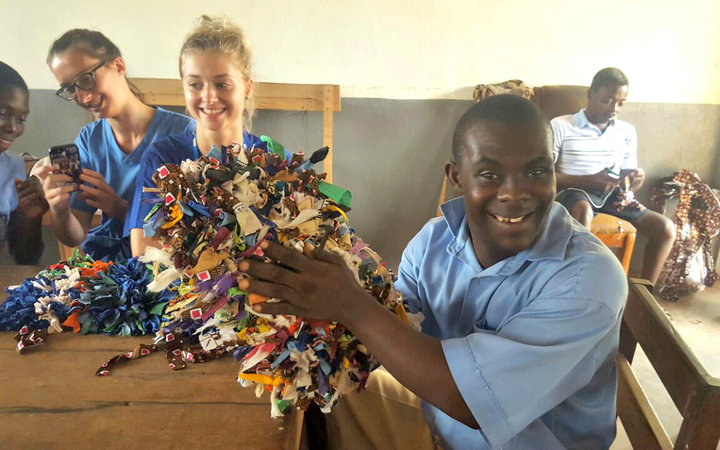
You’ll learn to work through challenging situations, observing how local specialists succeed despite extremely limited resources. You’ll also develop exceptional communication skills as you work with local specialists to overcome language barriers. This will enable you to use techniques like body language to communicate with patients.
Undertaking a placement in a developing country familiarises you with stepping out of your comfort zone—something you’ll do a lot of if you choose to undertake residential and community work once you’re qualified.
In fact, throughout your career as a learning disability nurse, you could find yourself in all kinds of workplaces. Schools, residential and community centres, mental health trusts, palliative care wards, or with speech and language therapists. Getting to grips with an unfamiliar environment and watching yourself grow confidently will empower you to assert the same positive attitude back home.
Feel Inspired?
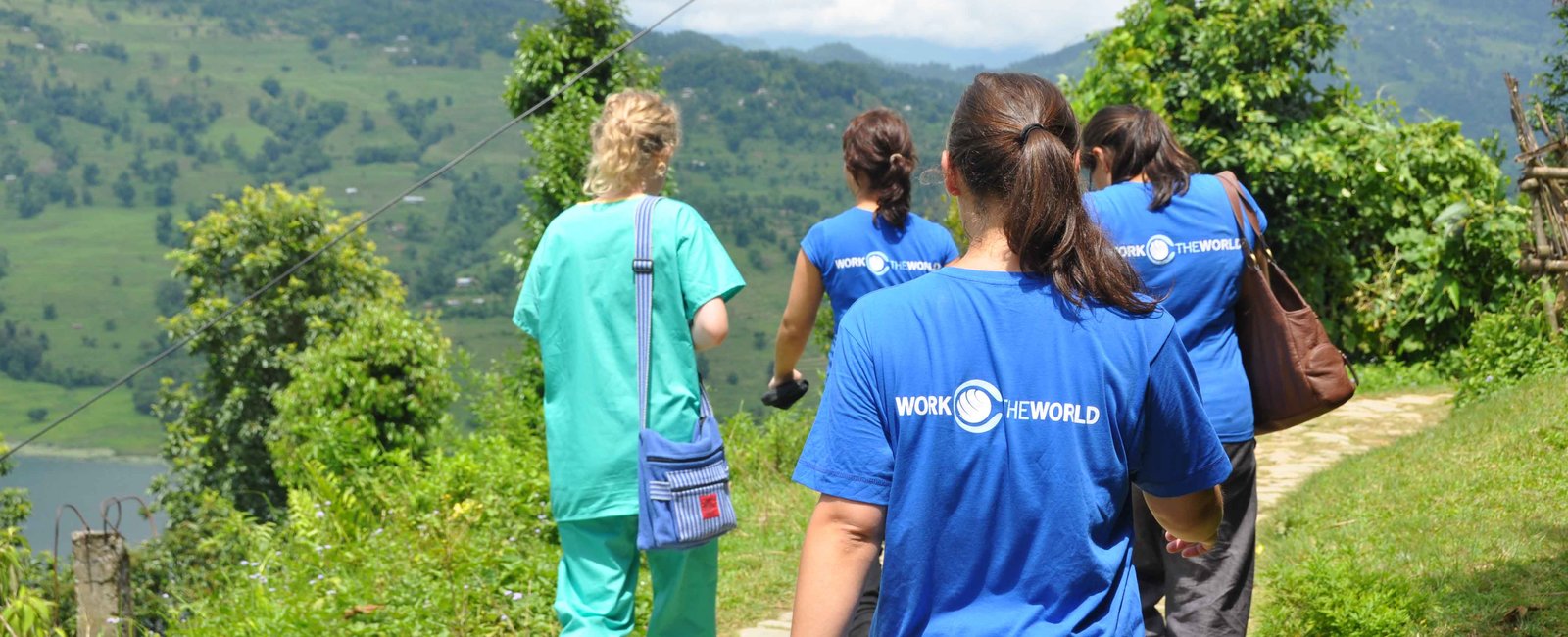
If you want to stand out in the working world, investing in an overseas nursing programme will give you the boost you need to get ahead. This is true for every branch of nursing.
Feeling inspired by these different exciting nursing elective placement ideas? Next, click here to learn about the breathtaking destinations you can choose.
You can also check out our nursing elective page to learn how we will build a placement around your specific clinical interests.
Do you have questions? Fill out the short enquiry form, and we’ll reply quickly. You can also read more about our nursing electives here.

Explore Destinations
To start your own overseas nursing adventure, check out our range of stunning destinations today.
To start your own overseas nursing adventure, check out our range of stunning destinations today.

